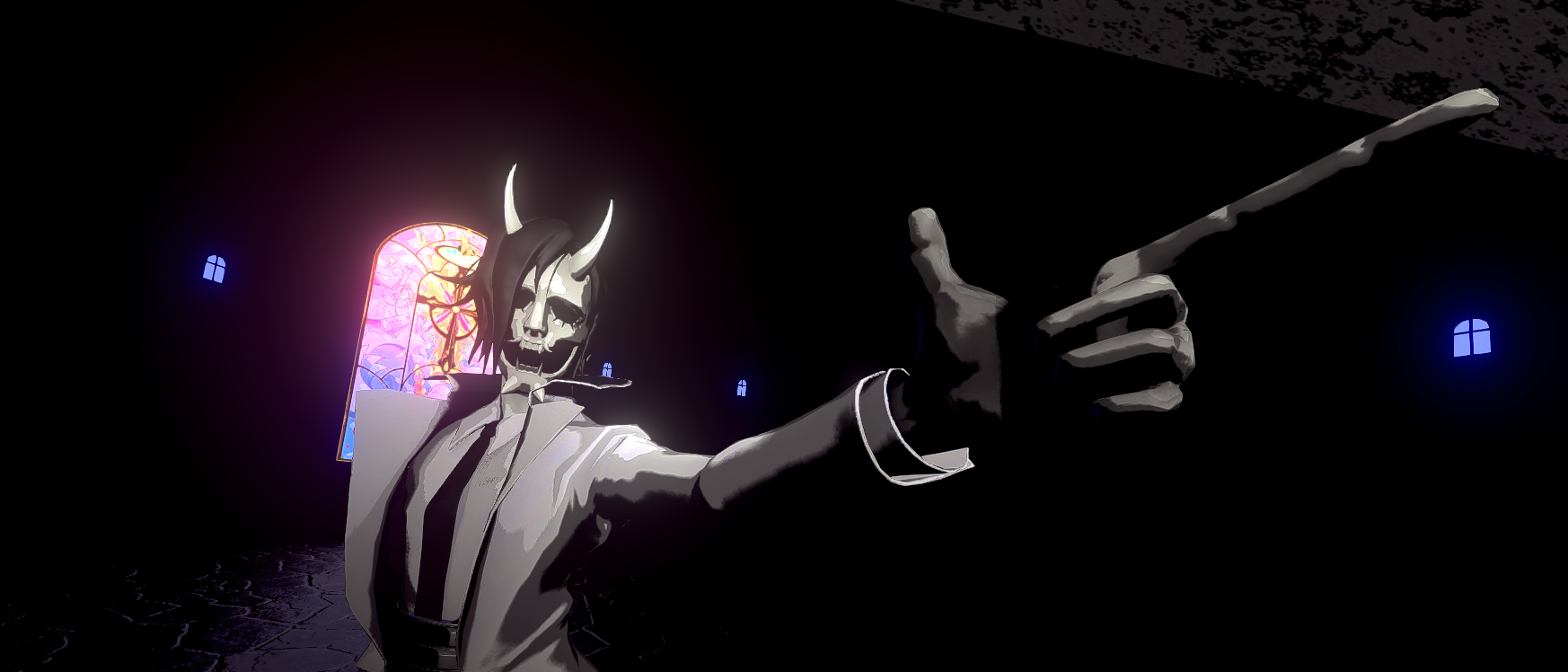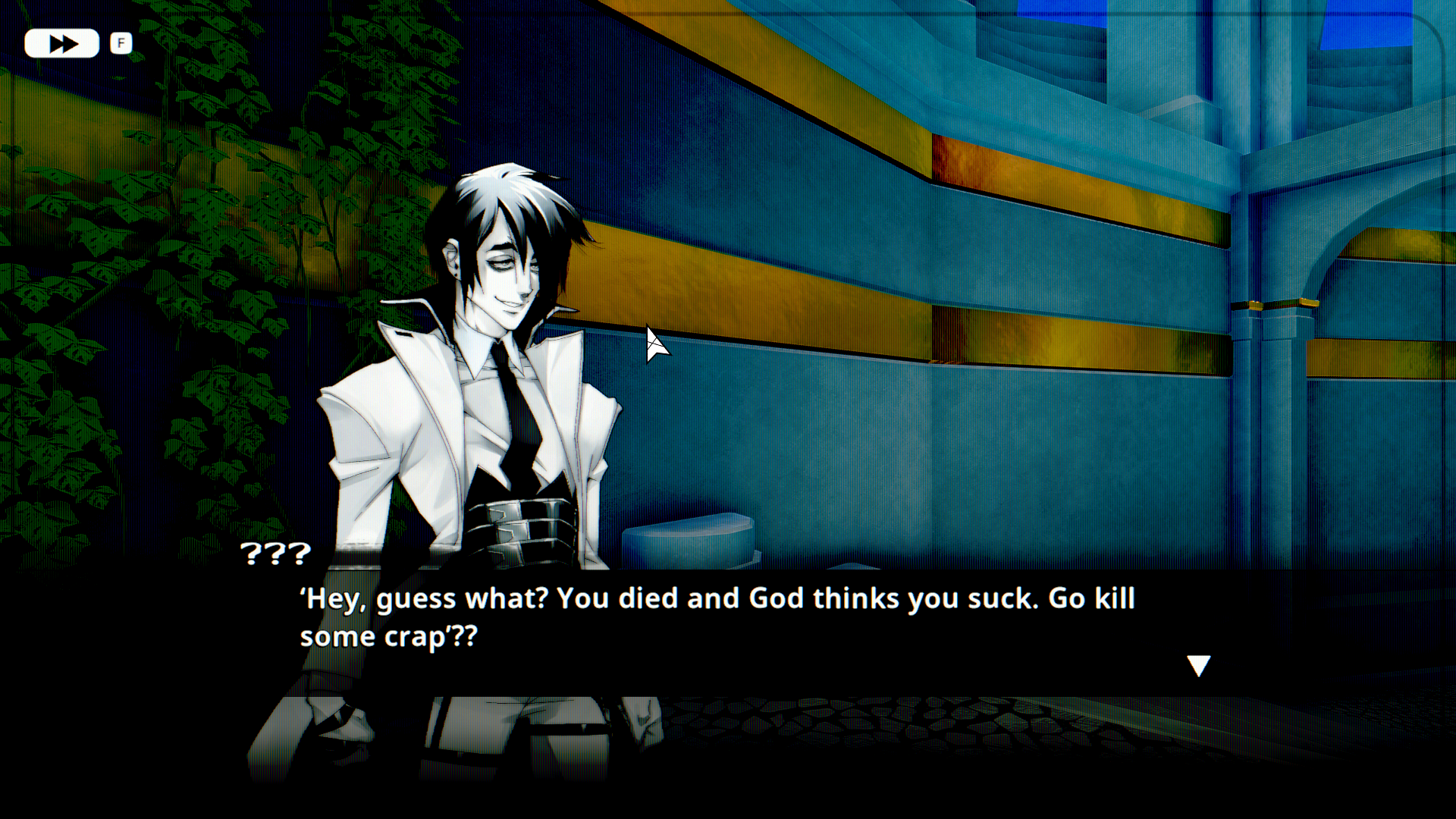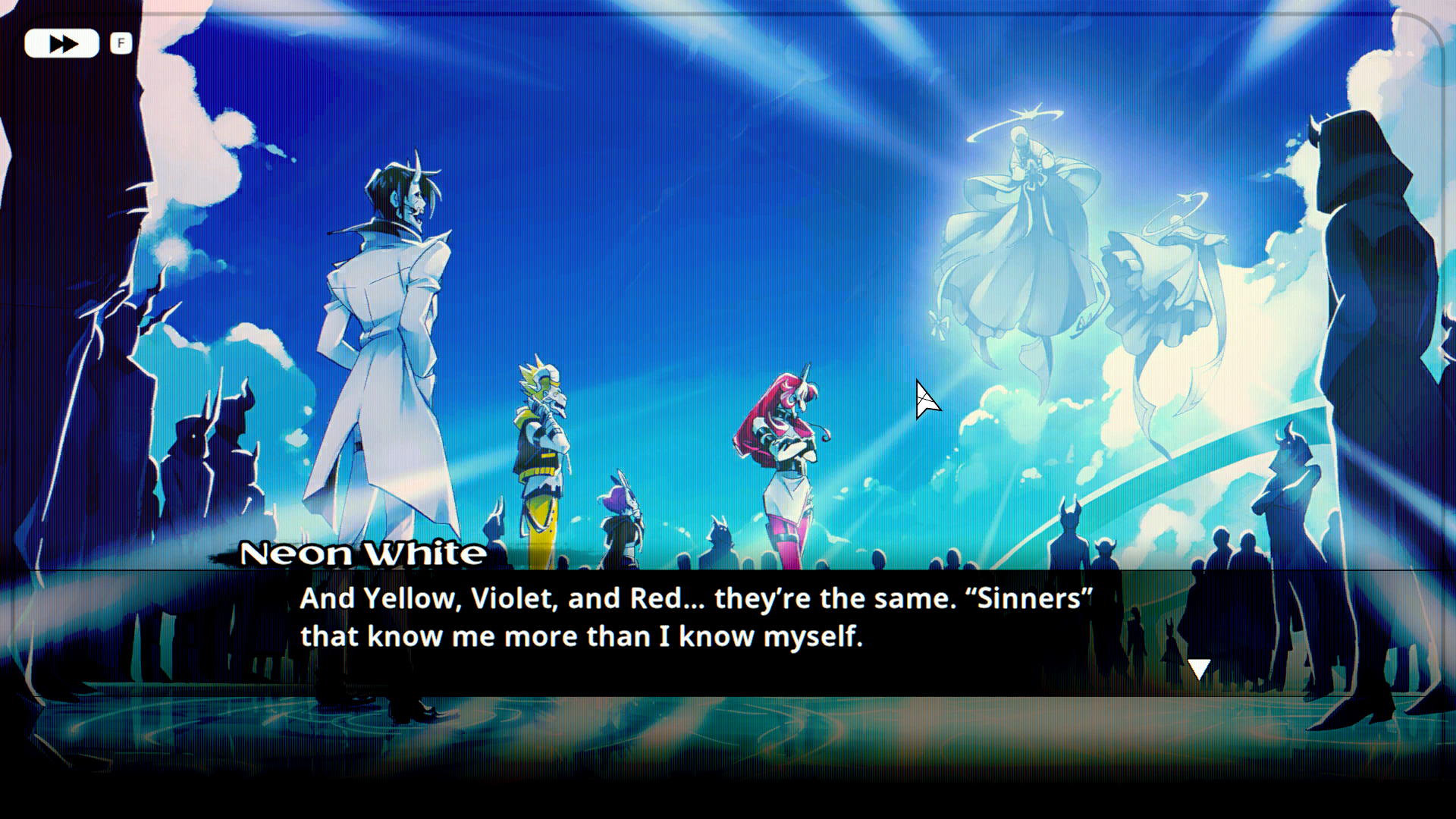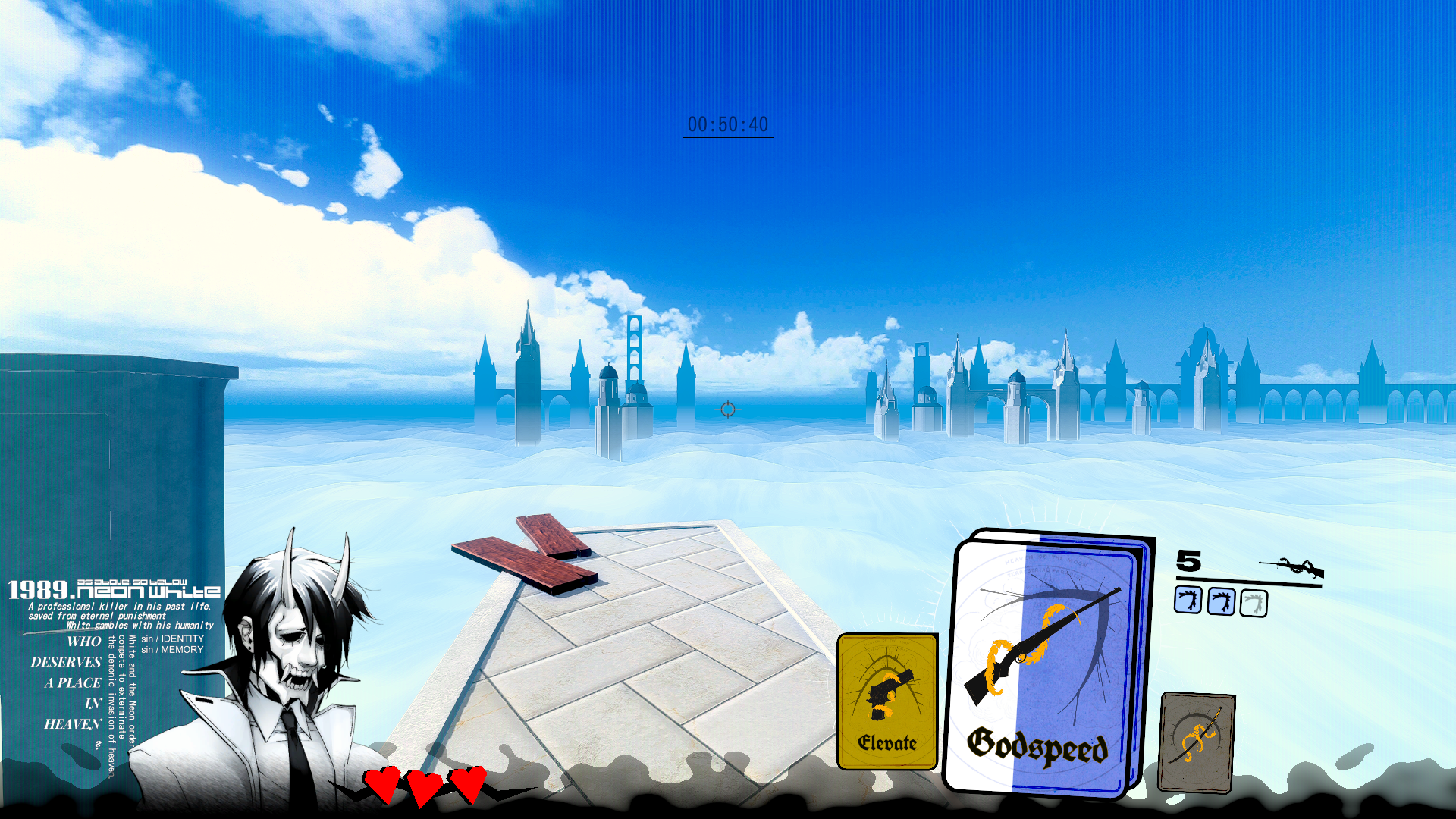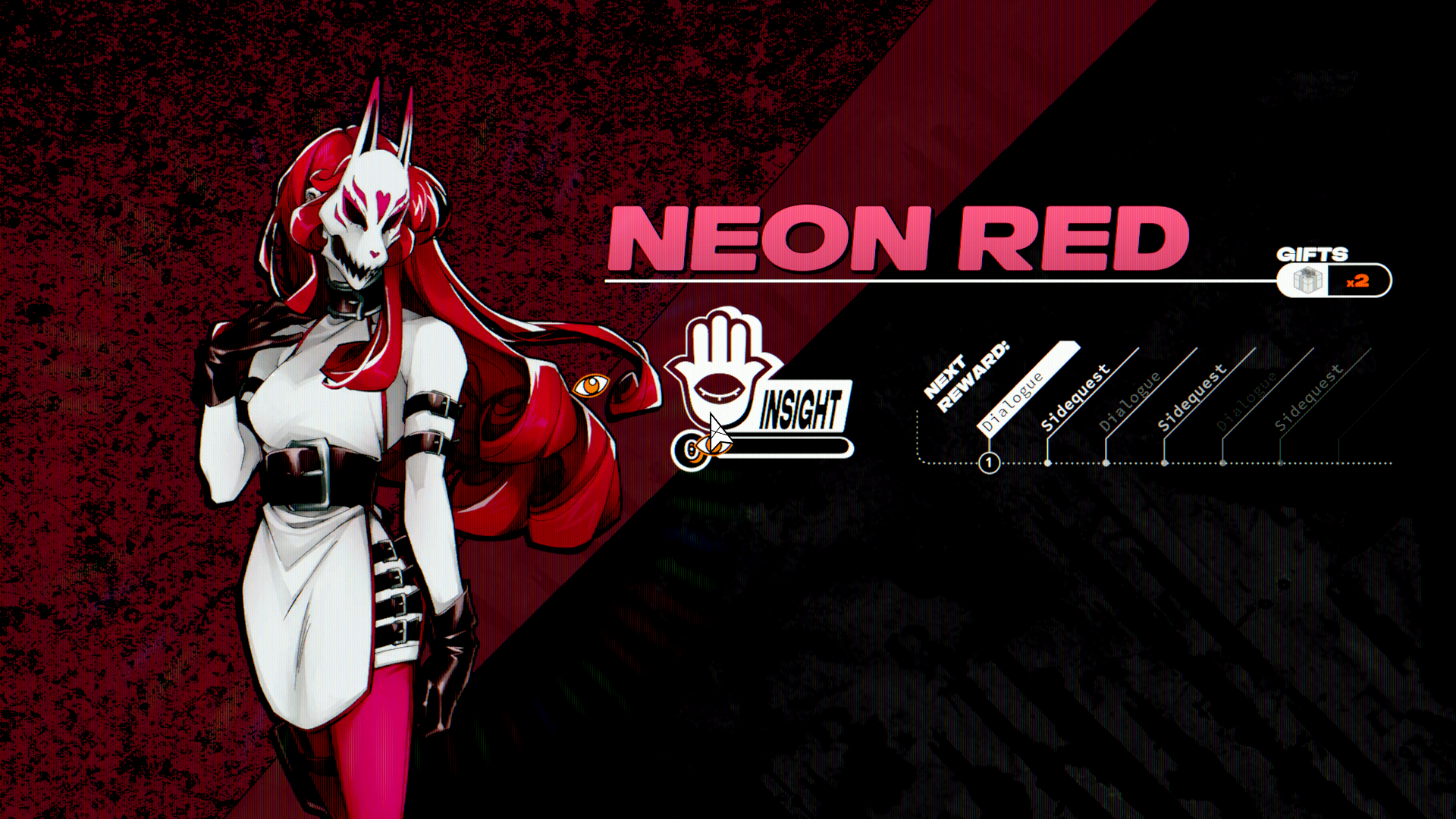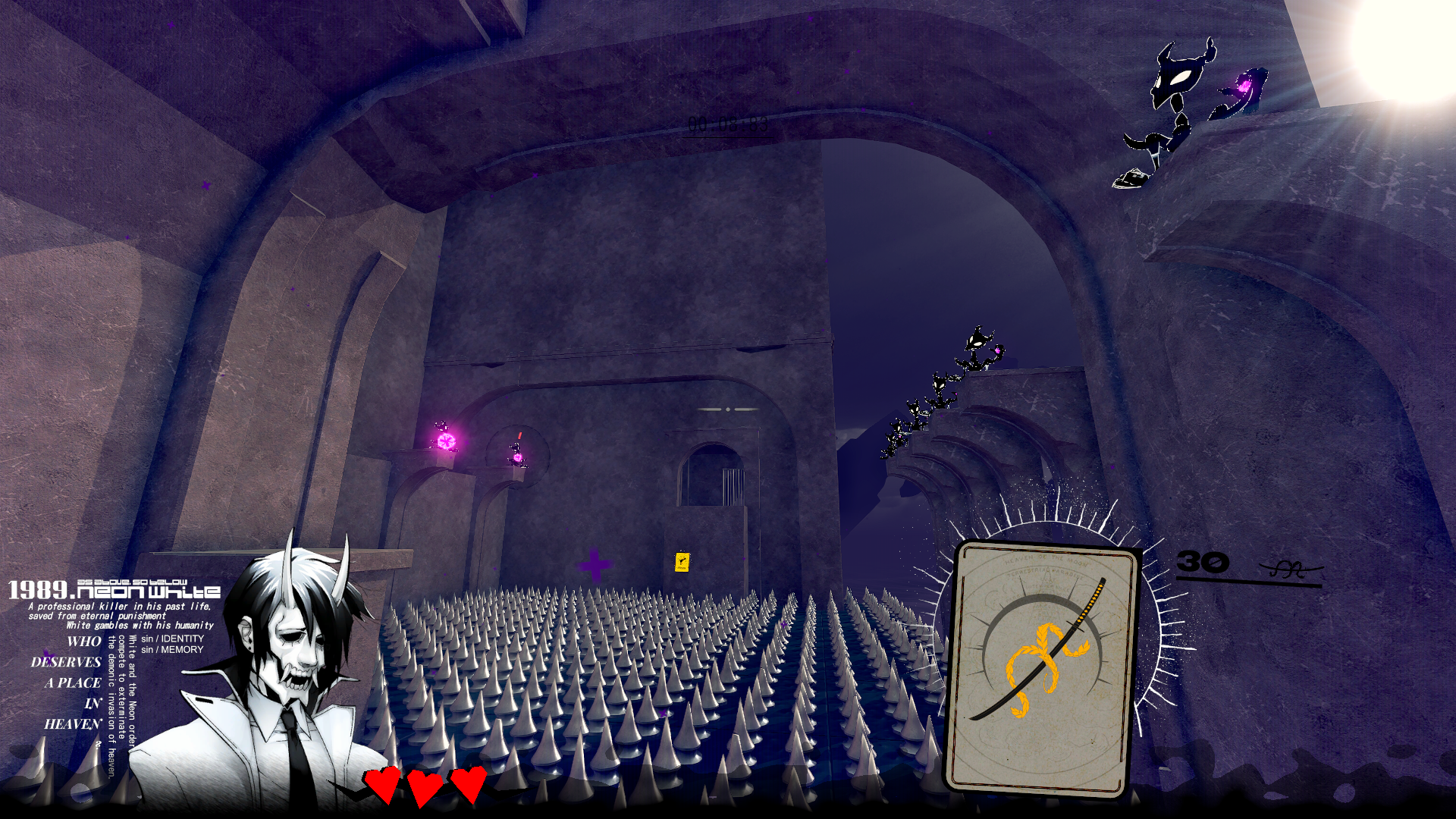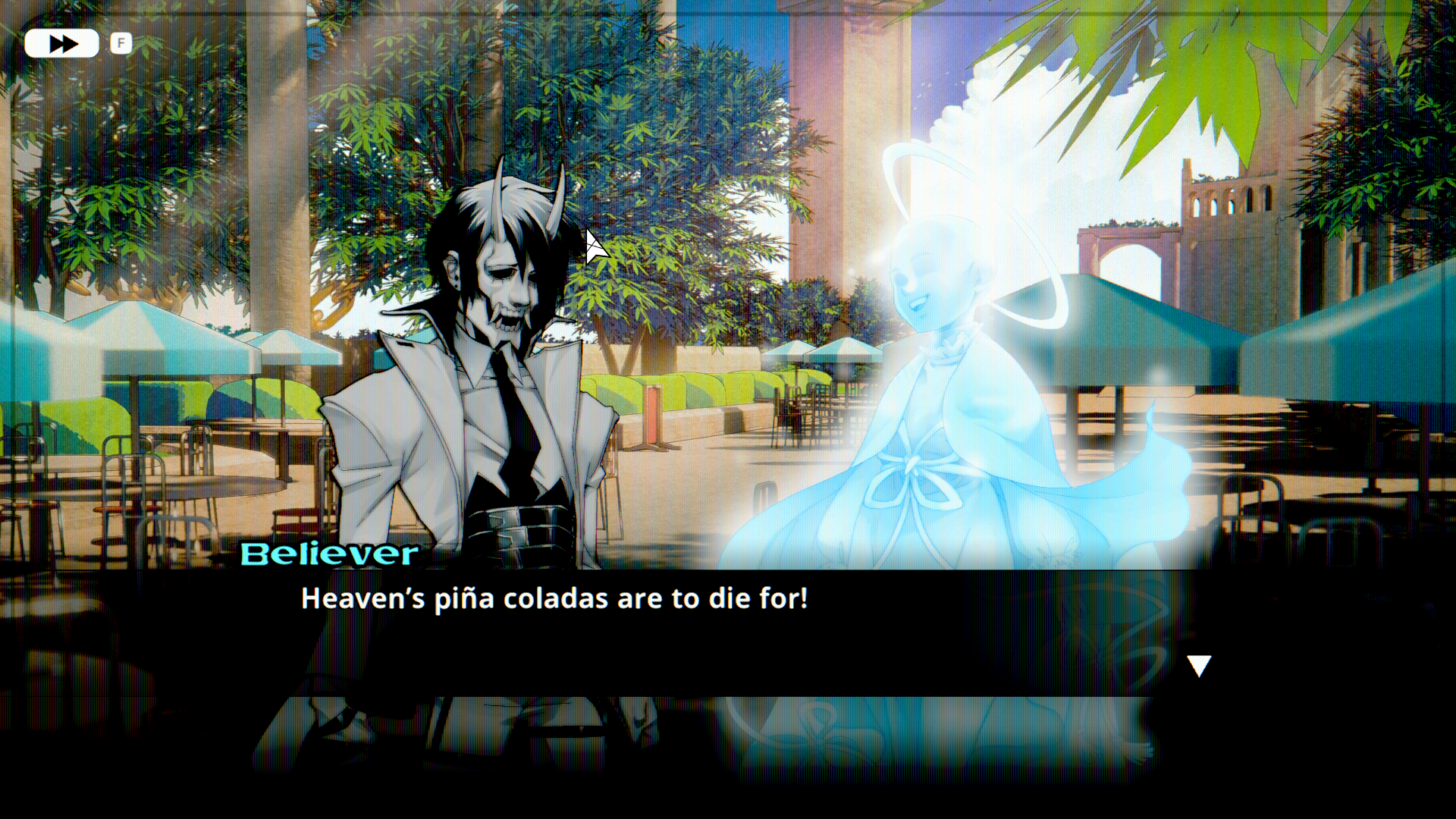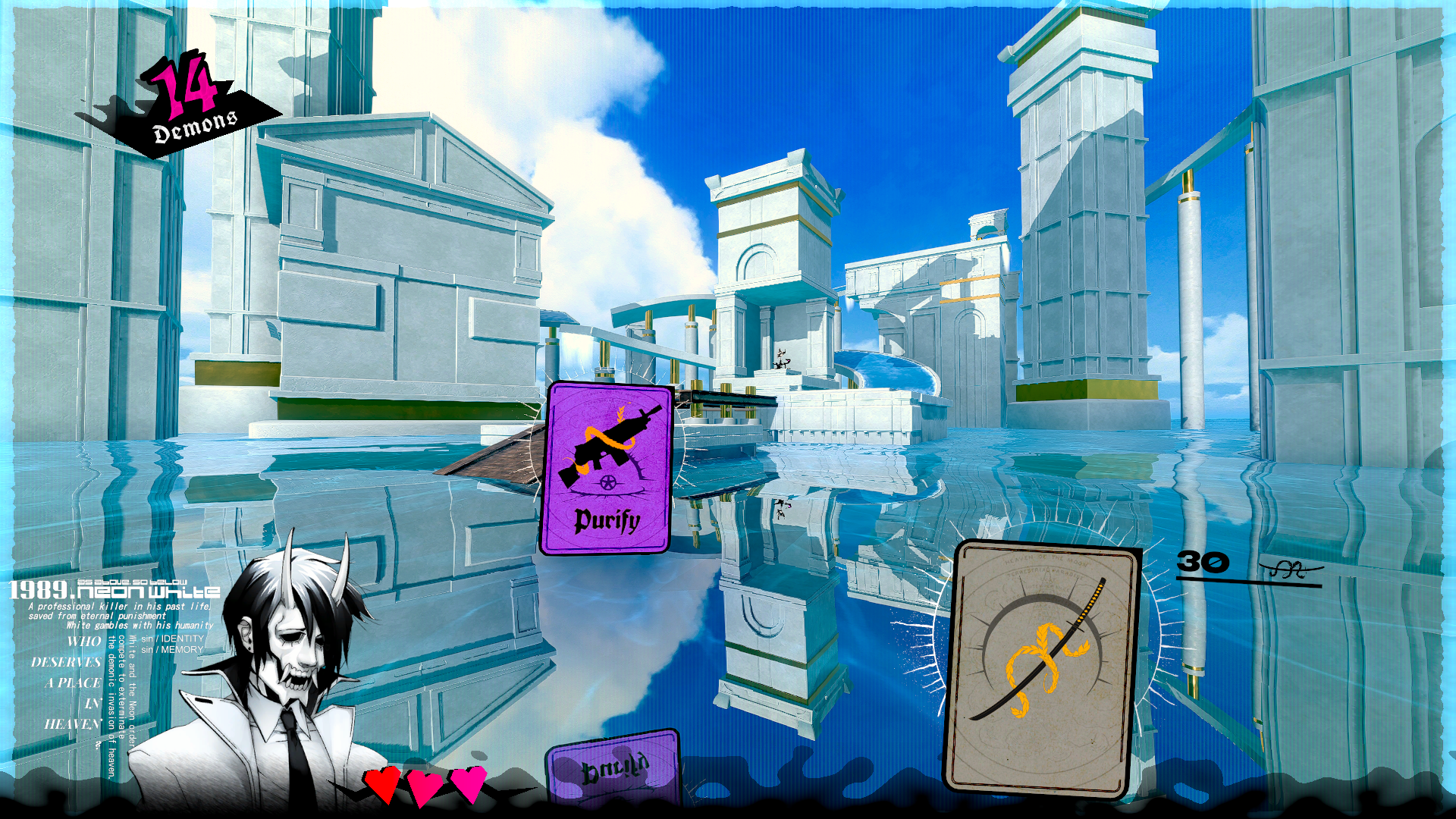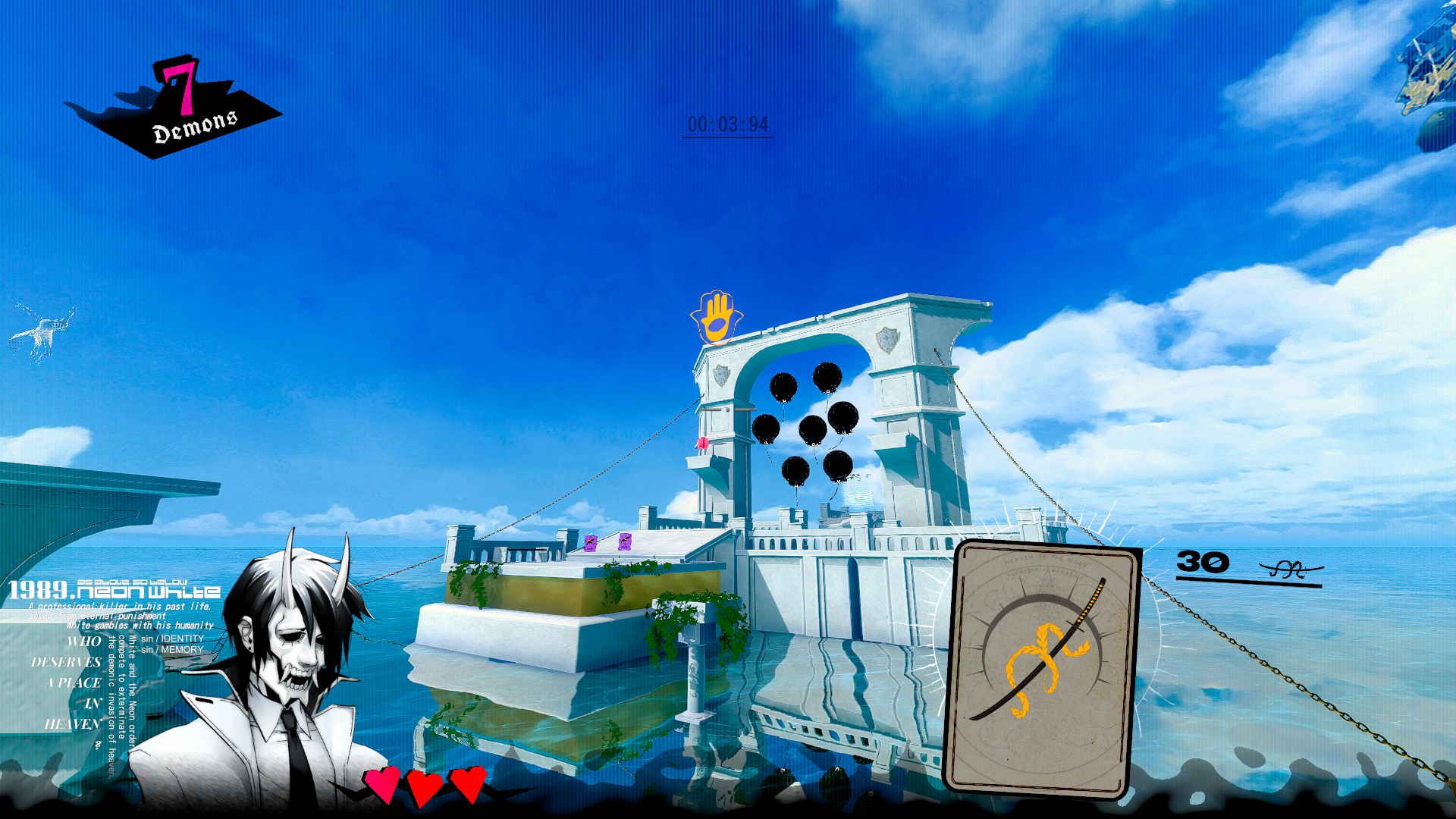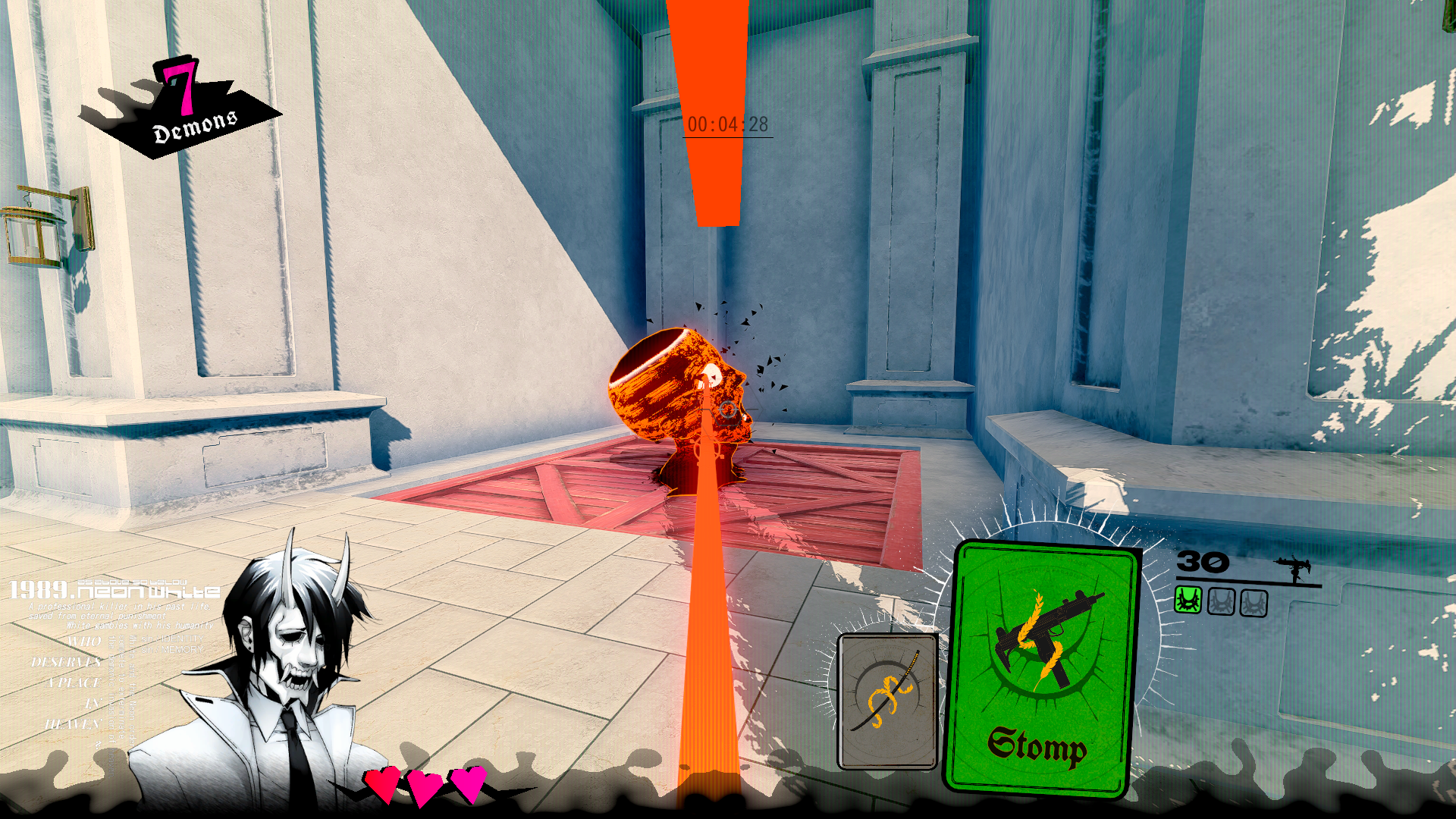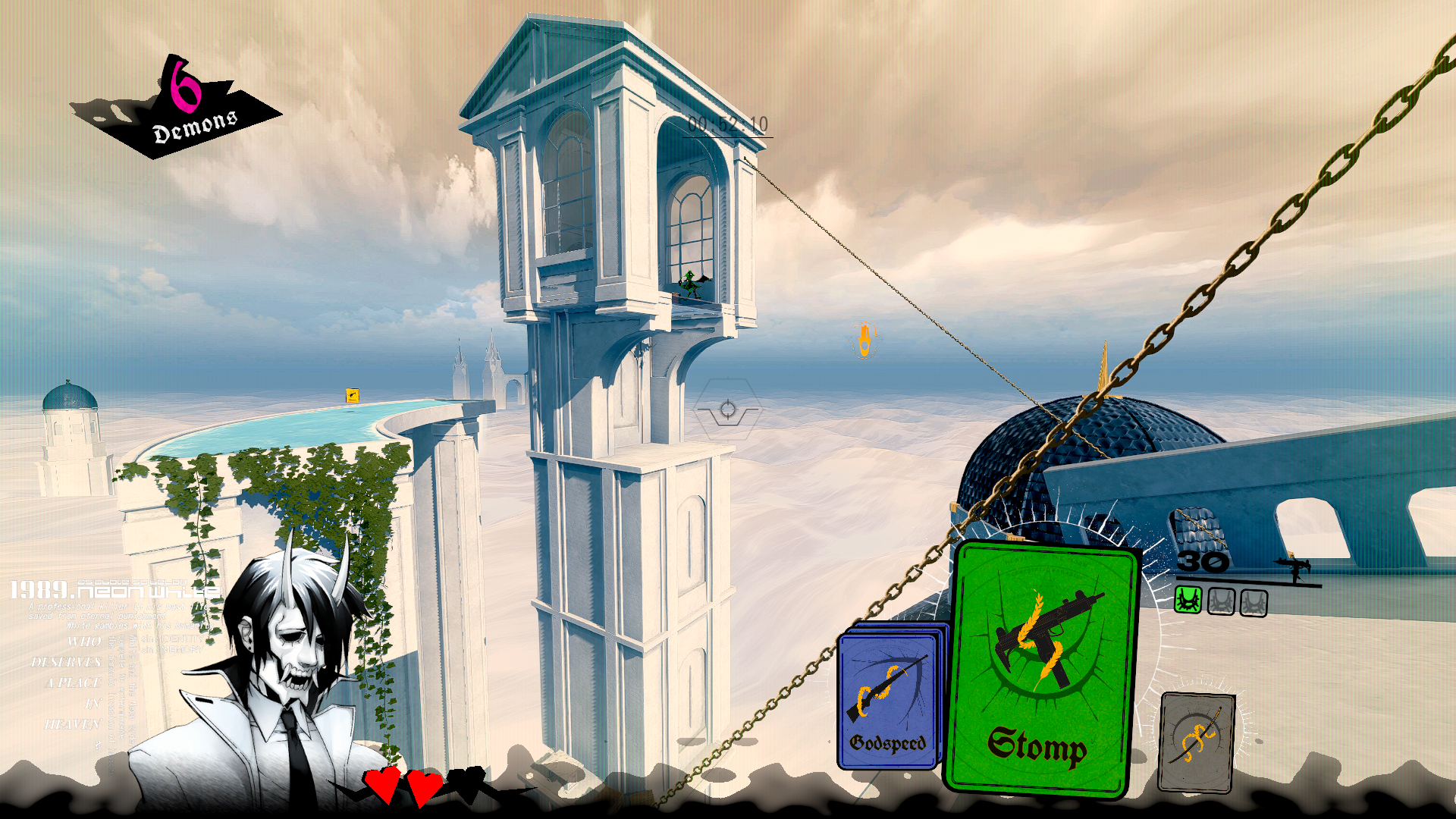Laptop Mag Verdict
Neon White is a creative blend of puzzles, speedrunning and fast-paced FPS action, topped off by an intriguing yet predictable anime-style story. While side quests and vying for a spot on leaderboards will force you to use your noggin, the gameplay loop can get repetitive.
Pros
- +
Addictive, fast-based gameplay
- +
Creative, puzzle-based levels
- +
Upbeat soundtrack
- +
Story is engaging…
Cons
- -
…but predictable
- -
Little room for experimentation
- -
Gameplay loop can get repetitive
Why you can trust Laptop Mag
There are few things I hate less in games: card-based battle systems and speed running. Not because there is anything wrong with them, but more so due to the fact I immediately get nervous about them. Am I using the right deck build? Is this the right route to take to attain the fastest time? How many times do I have to do this before I get this right? All of these questions ultimately come down to a single resolution: I’m not good enough and I don’t have the patience to get better.
So, when Neon White fell onto my lap(top), a game that mixes a card-based system with time-based levels, I understandably got fairly squeamish. Even before pressing start, I thought to myself “oh heck, this is gonna be a struggle to get through.” It’s not just me — both of these genres are a hard nut to crack across a broad gaming audience. Yet, Neon White pulls you in with its bizarre mix of puzzle-based first-person shooter gameplay and story-driven narrative — akin to the likes of Persona 5. An FPS with an anime-styled concept about what happens to the wrongdoers after death, you say? I’m on board now.
Annapurna Interactive’s Neon White, developed by Angel Matrix, is a crazy FPS speedrunning platformer that is nothing like you’ve played.
Neon White: Heaven is a trip
The main protagonist, Neon White, wakes up with memory loss. Thrown into a lush-looking heaven, he’s spoken to by two angelic beings known as Believers: Presider of Punshiments and Master of Mercies, agents of god. All you know is that you’re a sinner, and you’re involuntarily taking past in a competition to decide which sinner can take a place in heaven, known as The Ten Days of Judgement. Your task is to kill demons occupying heaven.
Far fetched, right? Well, your character thinks so, too. It reminds me of the hundreds of Isekai anime there are: taken into a enigmatic world after dying, with your character not knowing what’s going on but must quickly abide by the rules of the world. To kick things off, Neon White gets a katana Soul Card, a.k.a. “A totally sick samurai sword” that can’t be discarded. You’re given a slick devil mask (more so to further the art style of the game) that detonates if you don’t complete required objectives, and away you go.
Players progress through each level by slaying demons in the quickest time possible and reaching to end point. But that’s just the premise. Neon White has an overarching story that players will slowly discover with each few levels they complete. This is an engaging element to continue playing, and I felt like I was going through a season of a new-found series I wanted to binge watch.
New characters are introduced quickly, with a punky Neon Yellow, crazy Neon Violet, and alluring Neon Red making up most of the main characters White interacts with. He’s puzzled by how they know him so well, talking about past competitions and what not. This includes last year’s winner, an intimidating Neon Green. That’s the pull of any mystery, and I was thoroughly intrigued by where the rest of the game’s “missions” would take me.
While the story starts off with an intriguing mystery about White’s past, his connection to other (literally) colorful characters and bonkers life-or-death competition, it eventually steers into a predictable story. That’s not to say I didn’t want to see what happens at the end, but I was more engaged with the gameplay elements rather than hearing about how Violet keeps on trying to blow up Red — it’s a strange assassins-only type relationship.
Sign up to receive The Snapshot, a free special dispatch from Laptop Mag, in your inbox.
Neon White: Cloud nine drama
That’s enough said about that. You’re eventually taken to a hub world of Central Heaven, where you can interact with characters, check your relationship status in your room (which I rarely did), and progress the story. Like a relationship sim, you can progress different characters’ storylines by completing side quests and offering gifts.
You can get these gifts by revisiting levels and scouting around for them. Most aren’t too hard to find, and once you do collect them, the level is immediately over. It’s purely beneficial to excelling relationships with the characters you meet, making them more of a side step to your main objective. Take 'em or leave 'em, depending on how you want to play the game.
It’s clear the game isn’t dependent on you getting these gifts, as there are voiceless dialogues between you and the character you give gifts to. I was inclined to do this though. Characters can be two-dimensional if you don’t investigate their relationship to White, and it brings you deeper into the fun dialogue set up. For example, Neon Purple has a messed-up logic on what’s considered cute: bunnies and sharp knives. It’s a bizarre trait, but something you’d want to delve deeper into.
Not only that, but you also access special side quests, offering more gameplay opportunities outside of the rules of the main gameplay loop in different locations. For instance, Yellow’s side mission bans you from discarding abilities, while Violet has a bunch of one-hit KO death traps. I was a fan of these missions, as not only did it bring a different angle to what you have been taught — killing demons as efficiently as possible — but also you gain further insight into your relationship with a former acquaintance.
Speaking of dialogue, it’s whack. In a good way. You’ll hear the characters questioning the image of angels (a few of them are cartoonish cats taking the like of Garfield in sunglasses), only for these angels to retaliate saying “ugh, why can’t people ask ‘hey, how’s your day going’ instead?” It’s light humor, and it fits the game’s style.
Neon White: Godspeed, baby
Level design has been well thought out for on-the-fly speedrunners. I realized certain paths I could take to reduce my time the more levels I played. Knowing I could jump to out-of-the-way platforms without following the obvious, conformed path is where Neon White strives, and it quickly lets you know that experimentation is how you will get the best results (more on that later). With each card you get throughout a stage or after killing demons, you have a choice of shooting enemies or using it for parkour. Whether it's a simple jump or shooting them with a bazooka, it’s up to you to make the right decision to get to the finish line the fastest.
Neon White doesn’t go too hard on the card-based mechanics, thankfully. It’s whatever card that’s available in the level. Pick up an assault rifle? You can kill enemies with the card or discard it to use a purifying bomb to wipe out a block of enemies in one go. A pistol? Pick away at enemies and leave a little of the card’s energy to use for an extra jump. Does it make sense? No, but nor do a lot of anime series' concepts. Does it work without me batting an eyelid? Yes.
This is mainly a speedrunning game after all, and so, you can quickly replay a level by pressing F to instantly be taken back to the start of the level. I made more than enough mistakes with ill-placed jumps or shoddy shooting, so this came in handy more often than not.
You’re ranked from Bronze to Ace, with the highest obviously being trickier to get, especially on later levels. The better the score, the faster you gain ranks. Trying to achieve Ace on each level is when I realized each level in Neon White is more of a puzzle you need to figure out. It had me scratching my head a few times, and it’s satisfying to realize the different ways to pick off demons with the Soul Cards you’re dealt. With each level you complete, you get hints at how to beat it faster and a ghost playback to compete against your last time. It’s the same function you’d see in racing games, but it’s put to good use here.
However, the unlockable hints make getting the Ace a tad too easy. These hints are displayed as icons that are sometimes hidden in a level. Once you spot it though, you know where you need to go to a fast completion time. This means I didn’t need to experiment on my own if I wasn’t speedy enough, and there were hardly any other paths outside of the conformed route to shave significant seconds off my time. While more experienced speedrunners are sure to find other off-the-track methods, achieving Ace becomes more of a standard rather than a true achievement.
There are a lot of levels to complete, and each mission offers new mechanics to keep you entertained. Whether it's new demon types like a mimic chest that explodes with projectiles or a rocket launcher Soul Card that can be used to rocket jump or as a zipline, each level is set up to keep you on your toes. I mainly achieved Ace and nabbed the hidden gift on each level before proceeding, but it made me realize that each level has a set formula that got repetitive.
Speaking of, there are a couple of boss levels, but they play out like any other time trial — just with the added element of bringing the boss's health down. I like the way the developers integrated this, as it slightly changed the formula from the usual grind.
I need to give a shout-out to the music. One of the most compelling elements of Neon White is its soundtrack. Its upbeat neon-funk tracks are great to listen to while expelling demons post-haste. Each mission has a different beat, and even though they can take a while to beat, I never got sick of the drum and bass tunes egging me on to be faster.
Neon White: Bottom line
Speedrunning and card-based gameplay isn’t everyone’s cup of tea, and thankfully, Neon White doesn’t veer off in that direction. It’s a unique concept that mixes platforming, puzzles, time trials and interesting shooter mechanics in the form of uncomplicated cards — topped off by an intriguing yet predictable anime-style story.
Levels are creative and can be beaten in well under a minute, making gameplay addictive. While the loop of achieving the best times and nabbing hidden gifts can get a little stale, the overarching story, bizarre set of characters and side quests keep things fresh. Plus, for a game that's $25/£20, you’ll get a lot out of Neon White.
If you’re a fan of anime concepts that throw you into a world where angels are seen as hard-working cats, and want to try a unique puzzle-based FPS platformer that will have you using your brain to achieve a top place on the leaderboards, Neon White is the type of tea you’ll want to take a sip of.

Darragh Murphy is fascinated by all things bizarre, which usually leads to assorted coverage varying from washing machines designed for AirPods to the mischievous world of cyberattacks. Whether it's connecting Scar from The Lion King to two-factor authentication or turning his love for gadgets into a fabricated rap battle from 8 Mile, he believes there’s always a quirky spin to be made. With a Master’s degree in Magazine Journalism from The University of Sheffield, along with short stints at Kerrang! and Exposed Magazine, Darragh started his career writing about the tech industry at Time Out Dubai and ShortList Dubai, covering everything from the latest iPhone models and Huawei laptops to massive Esports events in the Middle East. Now, he can be found proudly diving into gaming, gadgets, and letting readers know the joys of docking stations for Laptop Mag.
